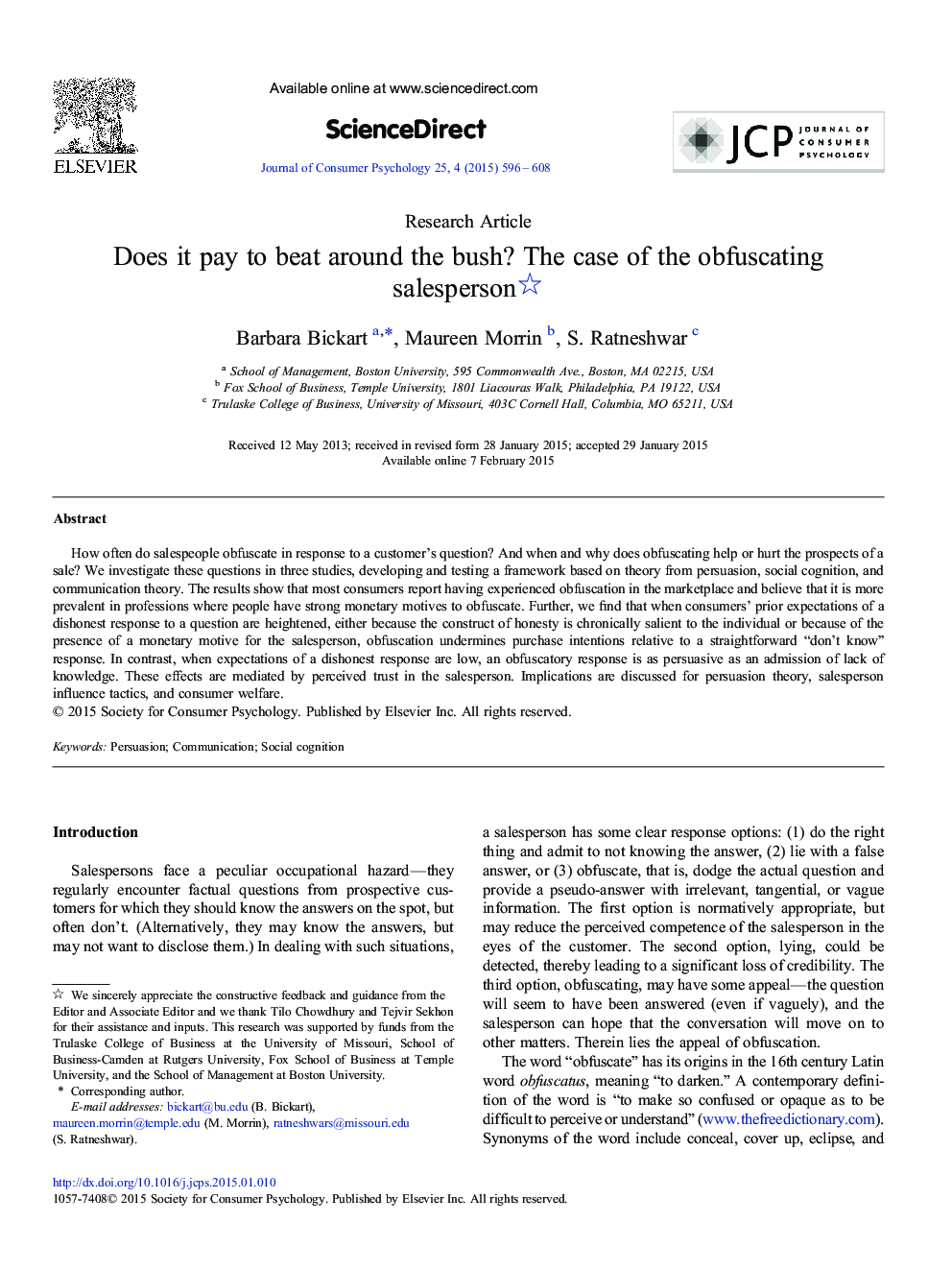| Article ID | Journal | Published Year | Pages | File Type |
|---|---|---|---|---|
| 882018 | Journal of Consumer Psychology | 2015 | 13 Pages |
How often do salespeople obfuscate in response to a customer's question? And when and why does obfuscating help or hurt the prospects of a sale? We investigate these questions in three studies, developing and testing a framework based on theory from persuasion, social cognition, and communication theory. The results show that most consumers report having experienced obfuscation in the marketplace and believe that it is more prevalent in professions where people have strong monetary motives to obfuscate. Further, we find that when consumers' prior expectations of a dishonest response to a question are heightened, either because the construct of honesty is chronically salient to the individual or because of the presence of a monetary motive for the salesperson, obfuscation undermines purchase intentions relative to a straightforward “don't know” response. In contrast, when expectations of a dishonest response are low, an obfuscatory response is as persuasive as an admission of lack of knowledge. These effects are mediated by perceived trust in the salesperson. Implications are discussed for persuasion theory, salesperson influence tactics, and consumer welfare.
